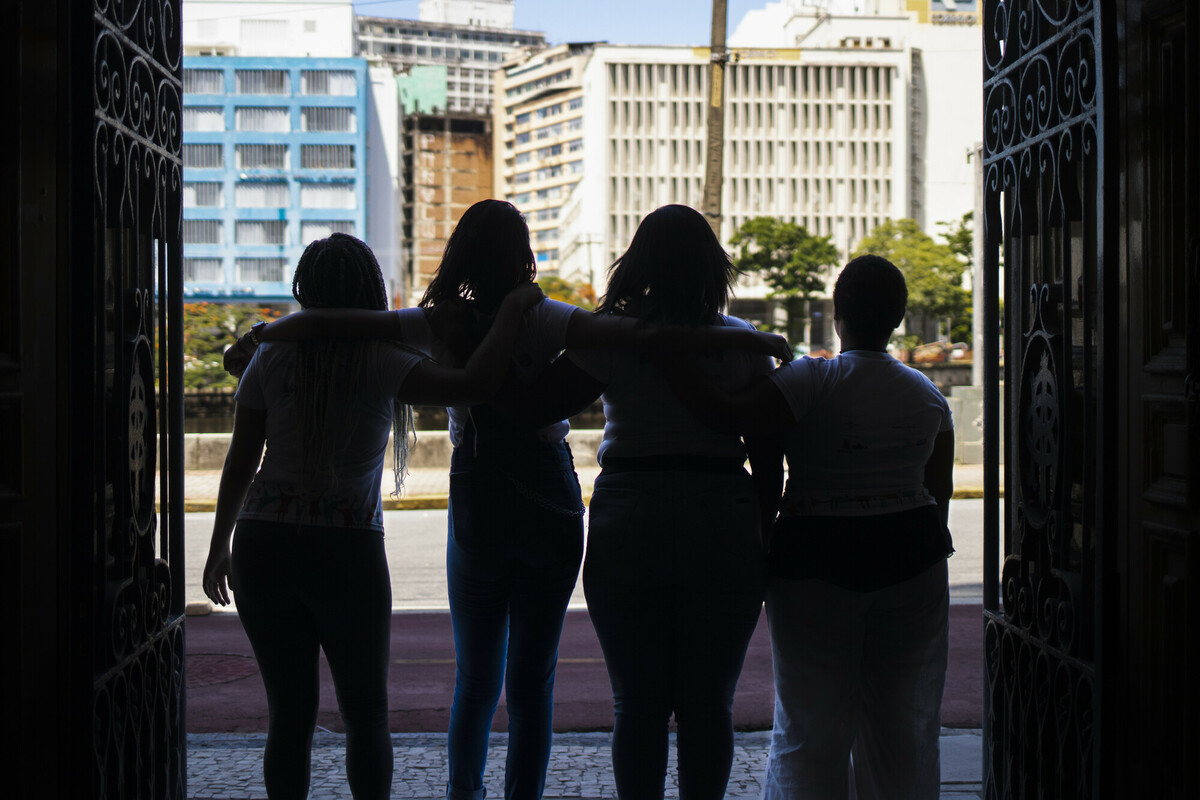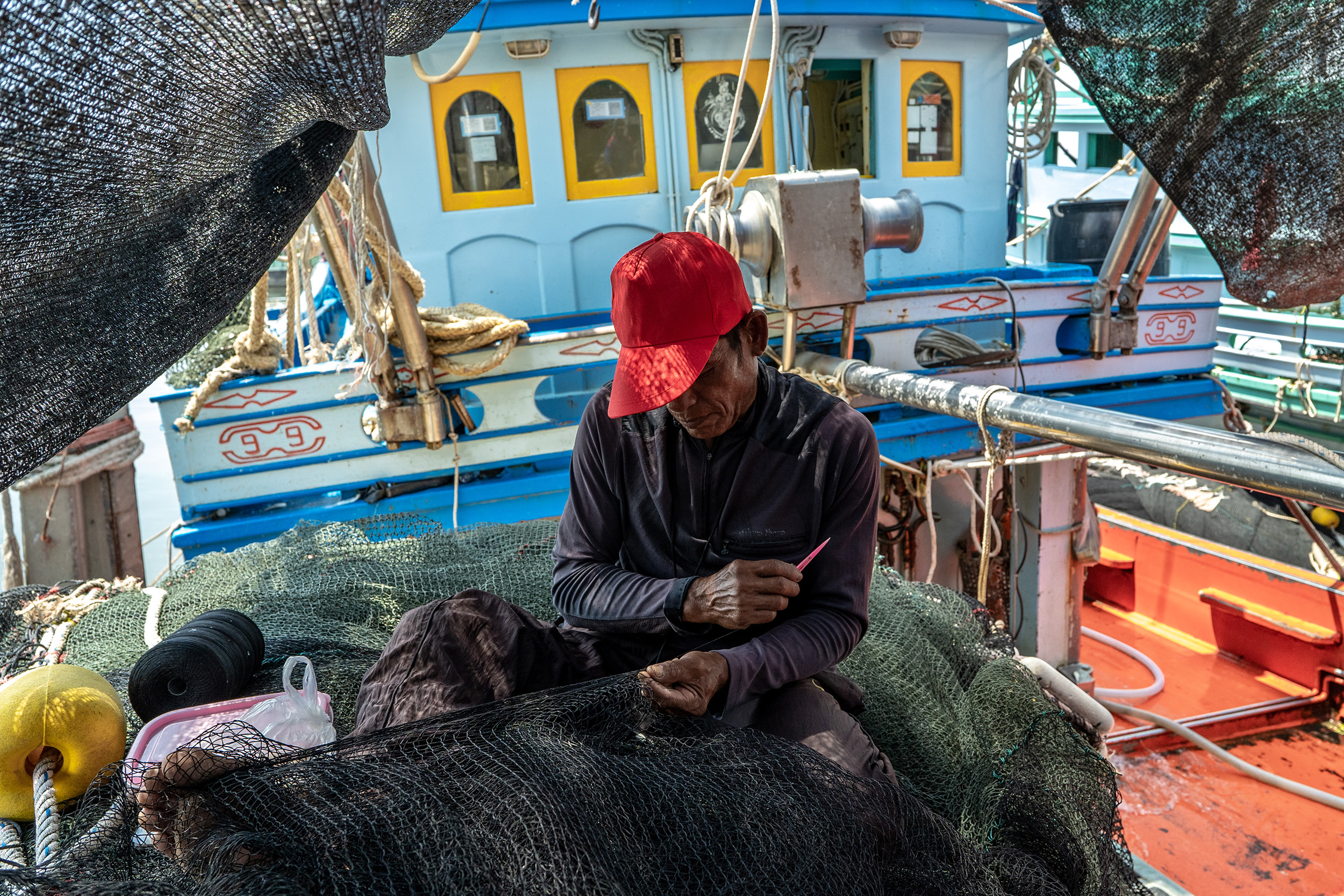
Our impact
2023-2024
Letter from our CEO
I’m still finding it hard to believe the Freedom Fund turned ten years old in January. I have such fresh memories of flying into London at the start of 2014 to take up my post as the inaugural CEO of this brand-new philanthropic fund. At that stage we had no other staff, no office, our board had not been formally appointed and we had no strategy in place. But we had huge ambitions, and the enthusiastic support of our three founder organisations — Legatum, Walk Free and Humanity United — to turn those ambitions into meaningful change for the tens of million women, men and children in slavery, or at risk of it, around the world.
Fast forward ten years and the Freedom Fund is now working on the ground in 16 countries with high burdens of modern slavery, and helping transform millions of lives.
I won’t set out our many impact numbers here, as you will find them scattered throughout in this report. But one of the numbers I will highlight is that we have funded and partnered with over 225 frontline organisations in the last decade. These frontline organisations are the building blocks of all sustainable change when it comes to modern slavery. And every time I visit our program countries and spend time with the courageous and dedicated staff of these organisations, I come back inspired by the change they are delivering every single day for the vulnerable communities they serve.
Of the many things I am proud of at the Freedom Fund, foremost among them is how our team and partners have helped redefine the discourse around slavery over the last decade. There has been a seismic shift in that time from a predominant focus on raids, rescues, and prosecutions, to an understanding of the centrality of resilient communities with the power to sustain their own liberation. There has also been normative change in the way antislavery organisations use data and research to understand their impact and contribution to change on the ground. That sets us all on the path to deliver even greater change over the next decade.
None of this would have been possible without the vision and unstinting support of our three founders — for which they have our everlasting gratitude. And that gratitude extends to all the funders who have been willing to take a bet on the Freedom Fund and our ambitious vision. We wholeheartedly thank you for that support. Many of those funders have been represented on our board over the years, and I thank all our dedicated board members for their commitment to our common cause. And finally, I want to thank all my colleagues at the Freedom Fund, past and present.
From our modest beginnings, we are a team of 80 in ten countries today. The impact that this team has achieved — in program countries with our frontline partners, and in shaping the antislavery space more broadly — is remarkable. It’s a testament to their expertise and commitment. It’s been one of the joys of my life working with them over the last decade to help deliver that change. And now it’s onwards into the next decade, and ever greater impact!
Nick Grono, CEO, The Freedom Fund
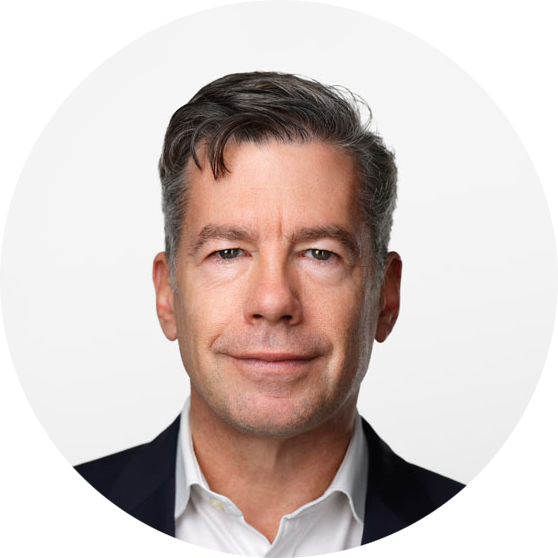
Global impact
January 2014 - December 2023
Hotspot snapshot
Bonded labour
In 2022, the Nepalese government made the landmark announcement declaring the liberation of the Hawara-Charawa. Freedom Fund partners and Harawa-Charawa leaders worked with the provincial land ministry, who drafted guidelines for data collection so that all Harawa-Charawa in the province could be identified and apply for rehabilitation. This marks a critical step in their journey to freedom.
The Harawa-Charawa Rights Forum, with support from the Freedom Fund, continued to strengthen their movement by organising district assemblies in all eight districts of Madesh Province to elect new representatives. The elections saw substantial participation and were covered by newspapers and national television, exerting pressure on the government to declare a comprehensive rehabilitation package.
The Freedom Fund worked with our partners in Nepal to create films to further generate awareness and support for the Harawa-Charawa and the implementation of their rights.
Forced labour and migration
In Indonesia, the Freedom Fund, including three labour unions, continue to push government and business to improve protections for fishery workers. One union partner was invited to participate in provincial tripartite negotiations on industry minimum wage, while another secured changes at the village level to improve protections for migrant fishers.
In Thailand, partners briefed both the national Thai government and international governments, including the US Department of State, US Department of Labor and the European Union, on labour exploitation in the seafood sector. Partners also worked to strengthen worker power, supporting worker groups at seafood factories and facilitating agreements with 52 vessel owners.
The Freedom Fund co-hosted a meeting in Addis Ababa of the Global Migrant Workers Network that brought together activists from six countries currently working in the Middle East. It was a ground-breaking opportunity for the network to engage with senior Ethiopian officials and open a dialogue on possible actions to support the rights of Ethiopian domestic workers abroad.
Thrive, a program supported by Walk Free, is seeing positive results in placing Ethiopian women returning from the Middle East in the labour market. 225 returnees have transitioned to formal work in the hospitality industry, with the majority securing positions at four- and five-star hotels in Addis Ababa. Thrive is a promising reintegration model at a time when the government has committed to creating millions of jobs over the next five years for returnees and other vulnerable groups.
Following advocacy by our partners in Ethiopia, the Minister of Labour and Skills agreed to take forward the inclusion of domestic workers in the labour law.
In Myanmar, our partners work in conflict-impacted communities to build awareness of multiple exploitation tactics and provide early response systems for those who are vulnerable. Despite the challenging context, they have been able to access this severely restricted population through their extensive network of volunteers, and provide concrete support to survivors.
Exploitative child domestic work
In Kenya, the Freedom Fund launched a program to address exploitative child domestic work and bring about visibility, while challenging the lack of public engagement around the issue. Titled Not Invisible Anymore, or NIA (meaning “purpose” or “intention” in Swahili), the program supports 14 partner organisations seeking to bring about meaningful policy implementation, enable economic resilience at the family level and provide integrated support to at-risk children and survivors. The program prioritises meaningful participation of child domestic workers (CDWs), survivors, and those at risk of engaging in exploitative child domestic work. In the first community of practice (CoP) meeting at the end of 2023, a range of stakeholders collaborated to develop tailored solutions to address child labour in domestic work.
In Ethiopia, we supported a behaviour change campaign by Girl Effect to target employers of CDWs. An independent evaluation found that the campaign reached 57% of employers in the target areas. Based on a random sample of 700+ employers, the study found that those exposed to the campaign were more likely to grant CDWs time off for rest days and public holidays. However, the evaluation did not detect a change in school enrolment, indicating a need for deeper engagement with households.
There was further progress in legal cases against those abusing CDWs, with partners enabling 19 convictions of those accused of abuse of CDWs in 2023.
The Freedom Fund published reports on child domestic work in Liberia and Nigeria. Six partners (three per country) were awarded $50,000 each as a part of an Intervention Development Research program on exploitative child domestic work funded by the US State Department.
Commercial sexual exploitation of children
The Freedom Fund continued to advise the Pernambuco state government in Brazil on revisions to its anti-trafficking policy. In December 2023, as a result of sustained advocacy by the Freedom Fund and our partners, the government of Pernambuco issued a decree restructuring its anti-trafficking bodies to increase their effectiveness. This was a key government commitment in 2022 and represents a major step forward against modern slavery in Pernambuco and Brazil.
A partner in Brazil reported that, during 2023, 76 adolescents completed their vocational training and 32 secured apprenticeships with local employers in Recife.
Partners in Bangladesh ensured 50 at-risk children received birth certificates. A lack of access to birth certificates for children of sex workers — typically due to uncertainty of the father’s identity — deprives them of entitlements, such as access to education.
A Freedom Fund partner successfully influenced the chief district official in a south-central district of Bangladesh to appoint a judicial magistrate to expedite the birth registration process.
Partners supported over 500 children to enrol in schools and non-formal education — an important protection mechanism for children living in brothel communities and on the streets of Dhaka, who are vulnerable to commercial sexual exploitation.
Fostering transformative change
We work with our partners to create change in places where people are at increased risk of exploitation and trafficking
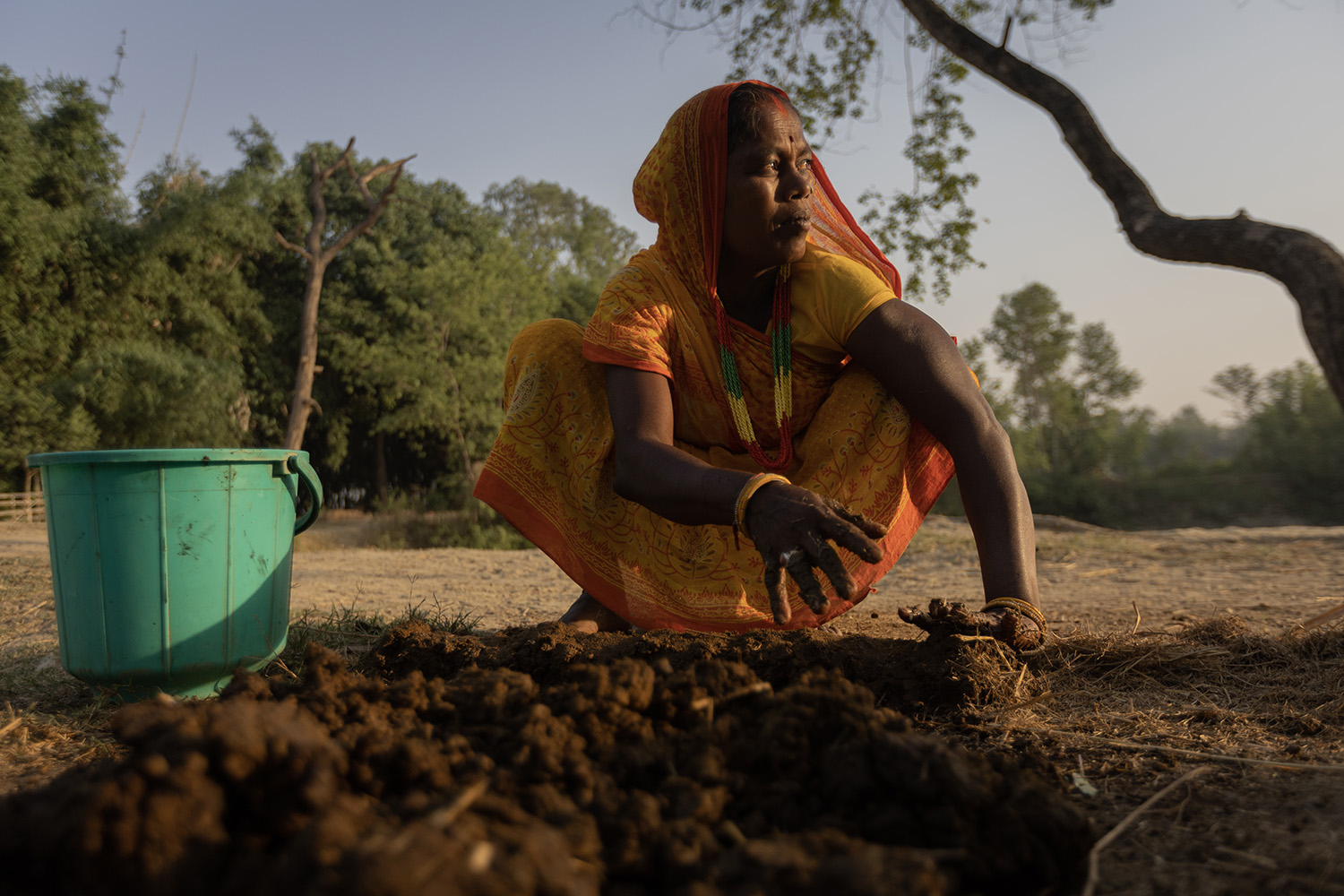
At-risk children in school
When I complete my studies, I want to become a teacher. I want to help the children of my village in their studies too.
- Sukhi, Nepal, 12 years old
In Nepal, many children of agricultural bonded labourers drop out of school to become labourers themselves. The Freedom Fund and our partners aim to remove children from hazardous child labour and support them with formal and non-formal education opportunities.
Sukhi is 12-years-old and has been attending the local school for five years. However, it wasn’t the smoothest start. “I found it quite difficult to grasp all the lessons especially those of mathematics,” said Sukhi. “I skipped many school days.” With support from her mother and teachers, Sukhi has since become comfortable and inspired by her school experience. “I got help in the difficult subjects like mathematics and science,” she said. “Other subjects got easier too. Now I go to school every day and keep up with the lessons.”
Since the Nepal hotspot’s inception in 2014, over 24,000 at-risk children have received education support. In 2023, the Freedom Fund’s partners supported 2,261 children from marginalised communities to enrol in school, of which 56% were girls.
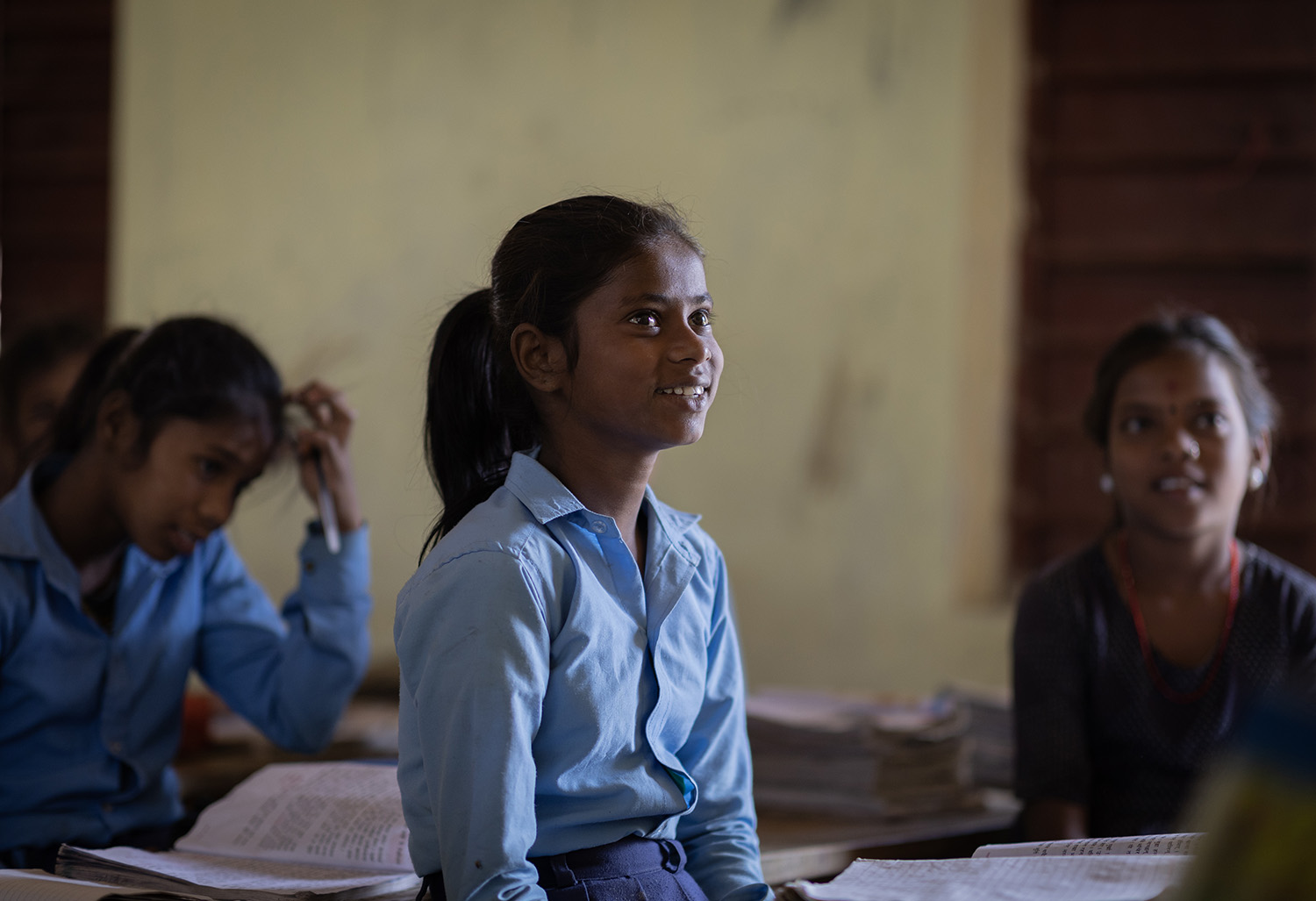
Movements that are led by people who are most affected by injustice create the deepest and most sustained change. Ending slavery therefore requires investment in the leadership of individuals and communities who are most affected by exploitation, to shift power and to challenge the norms that hold slavery in place.
Freedom Rising, our transformative leadership program that supports and connects frontline leaders, completed a full cycle in Brazil between March and November 2023. 47 participants from 25 organisations participated in four residentials over the course of the year. Following the program, participants are already changing the way they work to create more inclusive and sustainable organisations, and are continuing to meet and share resources to strengthen local movements.
Freedom Rising expanded to Nepal in December 2023, hosting its first residential with 48 leaders from 24 organisations. 82% of participants were women, 44% identified as survivors, and all are from traditionally marginalised communities.
The Survivor Leadership Fund, our trust-based fund for survivor-led organisations, supported 39 organisations in seven countries with unrestricted grants in 2023. Organisations supported over the past year were based in Ethiopia, Tanzania, Uganda, Nepal, Cambodia, the Philippines and Thailand. Since its launch in 2021, the Fund has now benefitted 75 organisations in 13 countries.
The Freedom Fund also provided six grants to organisations and ten grants to individual survivor leaders to organise and attend anti-slavery convenings around the world.
Elevate women and survivor leaders
We invest in frontline leaders — especially women and survivors — to grow their leadership in anti-slavery movements
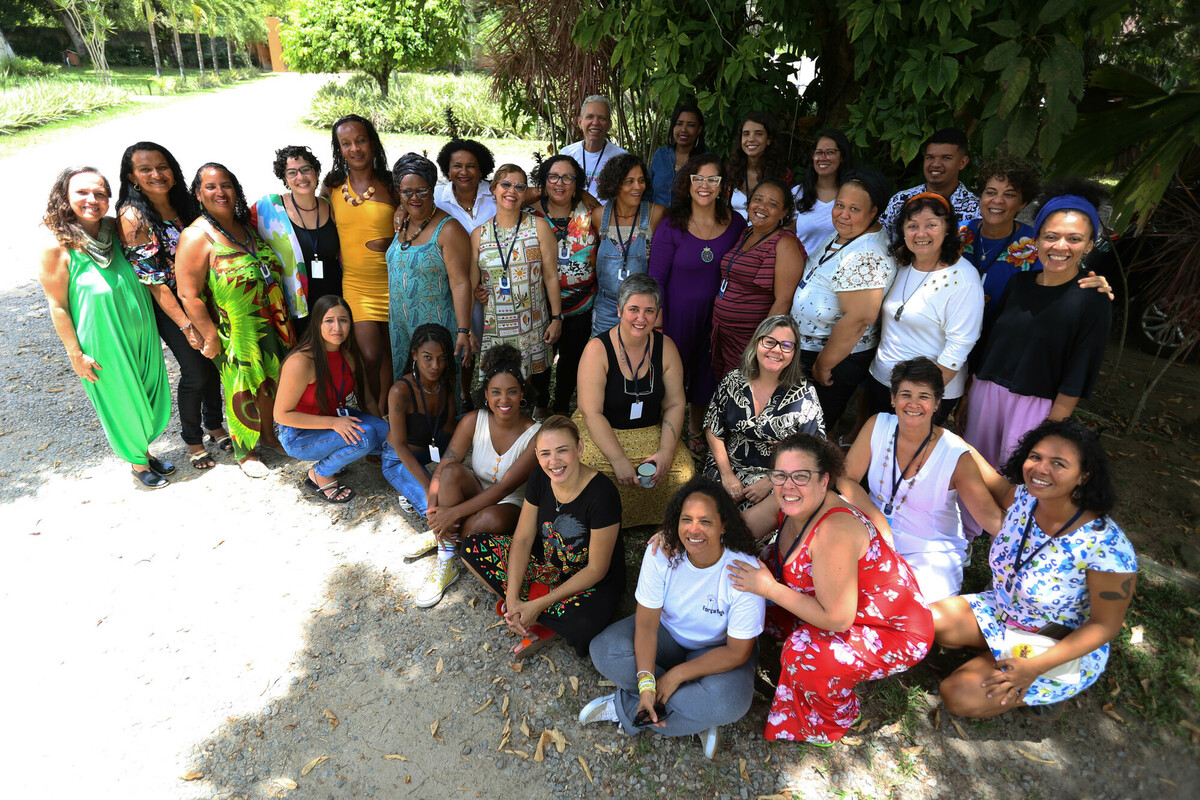
Amplifying survivors' voices
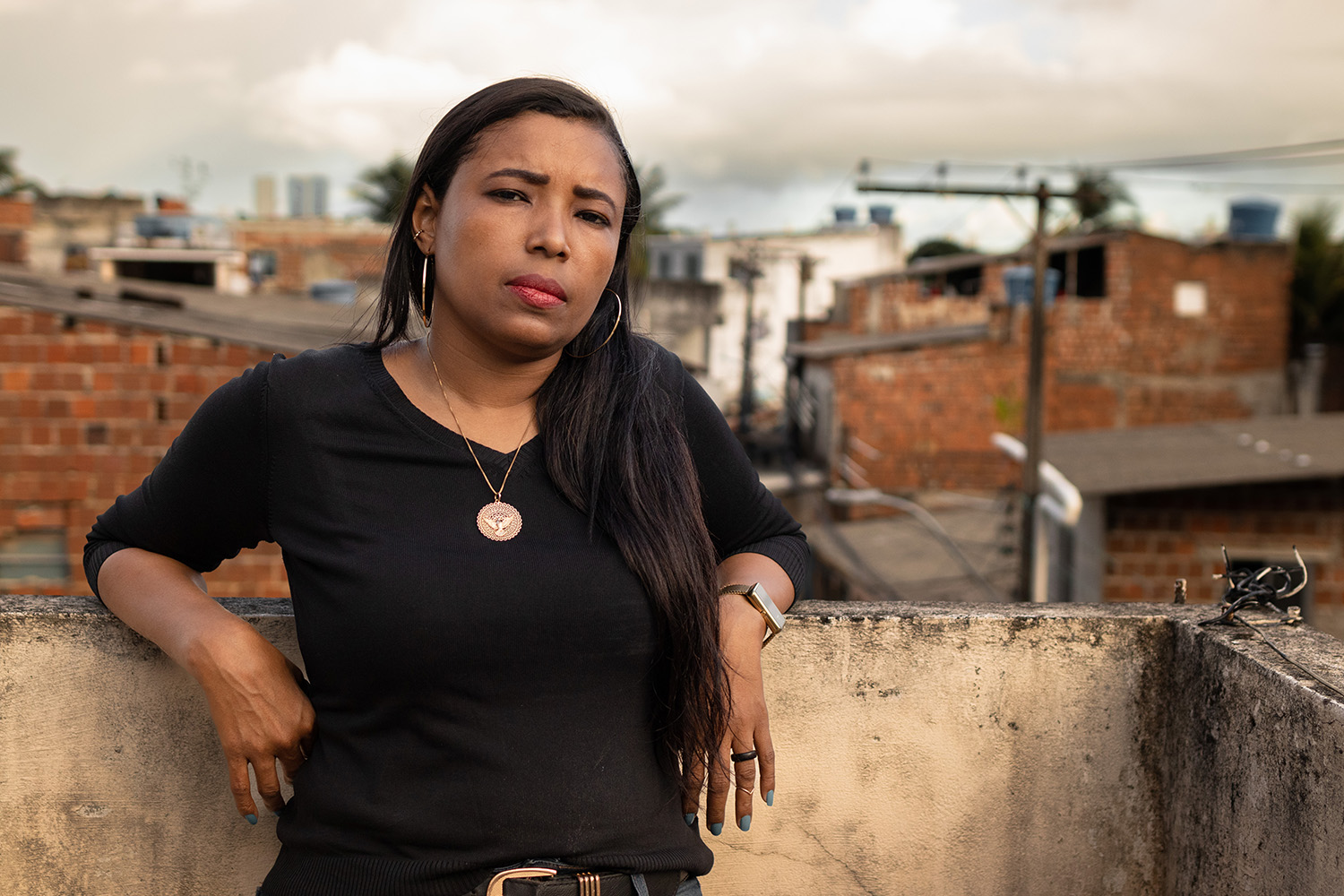
The Freedom Fund has been supporting strategic human rights litigation for almost a decade. Over that time, we recognised that beyond our grantees’ reports and isolated case studies, there was limited data about the extent to which strategic litigation influences corporate behaviour or what factors make a particular case impactful. To that end we commissioned our report, The Impact of Strategic Human Rights Litigation on Corporate Behaviour. The report highlights successful case examples, while also acknowledging the gradual and uneven systemic impact of strategic litigation on corporate behaviour.
We joined with the Human Trafficking Legal Center to launch the Coalition Against Forced Labour in Trade, a global civil society network advocating for import bans against goods made with forced labour. As project lead, the Freedom Fund will make grants to 16 coalition members in eight jurisdictions, with support from the Laudes Foundation.
Our Corporate Accountability team supported 40 frontline civil society organisations in Asia to attend a workshop in Bangkok to introduce them to our forthcoming Ecosystem Building project. This project will strengthen the role of frontline civil society organisations to engage in corporate accountability strategies.
As 2023 drew to an end, we closed the Tariff Act Legal Fund. In total, the Freedom Fund provided 13 organisations — the majority in the Global South — with financial and technical support to carry out forced labour investigations and present the collected evidence to US Customs and Border Protection. We will continue to monitor these submissions closely, and many grantees are currently being supported with advocacy grants to ensure they can leverage their investigations through broader advocacy strategies.
Advocating for global change
We work for changes in policy and practice to tackle the causes and drivers of modern slavery

Our work in Thailand draws to a close
Since 2015, we've seen significant change in Thailand that has had a real impact on addressing forced labour and labour exploitation in the seafood sector. But the most important change is that — after eight years of funding — civil society and worker groups are in a strong position to continue to monitor and fight for the rights of fishers and seafood workers into the future.
- Sarah Mount, Senior Program Manager, The Freedom Fund
In Thailand, overfishing and illegal, unreported and unregulated fishing has driven up costs, incentivising the use of trafficking and forced labour. Most workers in the seafood industry — 90%, by most estimates — are migrants from Myanmar and Cambodia recruited by predatory brokers. In 2015 the Freedom Fund launched its hotspot in Thailand in partnership with Humanity United and has made a significant impact, contributing to 40 policy changes, impacting over 87,000 lives and assisting with 1,592 legal cases.
With our six partners, we have taken a four-pronged approach to this work: improving access to civil society and worker organisations, empowering workers to organise, advocating to make government and the private sector more responsive to migrant workers’ rights, and increasing workers’ access to social and legal services.
As our focus has shifted to address forced labour in the seafood sector across the Asia Pacific region as a whole, we have scaled back our work in Thailand, including phasing out our direct funding of grassroots organisations. We are continuing to fund strategic work in Thailand through our wider Asia Pacific regional program in partnership with Humanity United.
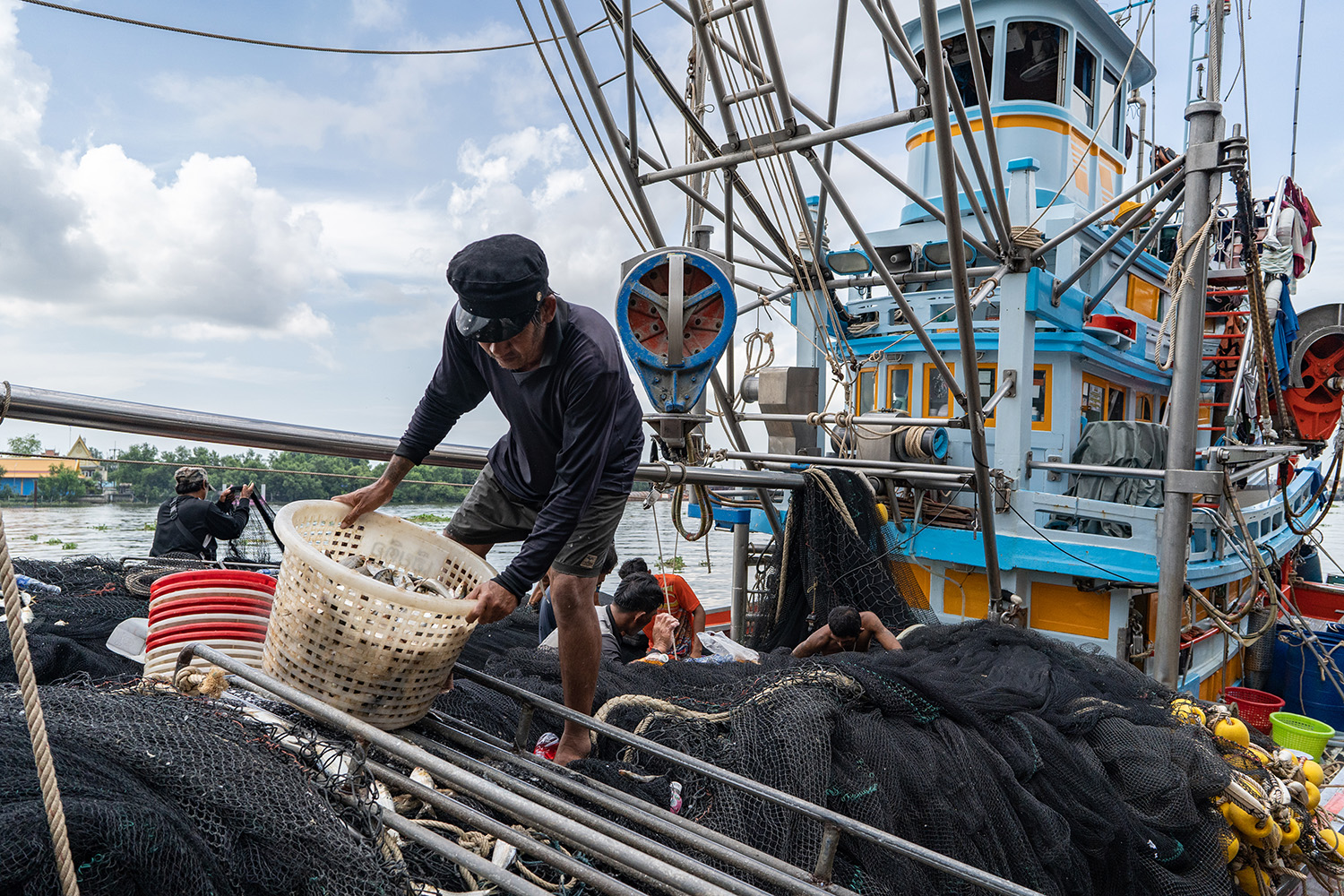
The Freedom Fund commissioned an independent evaluation assessing the impact of a behaviour change campaign that we funded in Ethiopia targeting employers of child domestic workers. The campaign reached 57% of employers in the target areas. Based on a random sample of 700+ employers, the study found those exposed to the campaign were more likely to grant CDWs time off for rest days and public holidays. However, the evaluation did not detect a change in school enrolment, indicating a need for deeper engagement with households.
In late 2022, the Freedom Fund commissioned a study with the Sydney Southeast Asia Centre at the University of Sydney to provide insights and recommendations to bolster the efforts of partners working in Indonesia’s seafood sector. The report was released in early 2024 and outlines labour organising models in Indonesia, focusing on informal and/or migrant workers, and identifies promising approaches for worker mobilisation adaptable to the seafood sector. Key findings reveal that, despite the inherent challenges in the seafood industry’s structure and labour dynamics, organising efforts have yielded tangible results in countries such as Thailand. The report emphasises the need for collaborative endeavours between workers’ organisations and NGOs, leveraging their respective strengths to foster meaningful change.
Evidence in equity
The Freedom Fund continued to lead efforts to deepen the research of modern slavery with an emphasis on centring the realities of frontline organisations, survivors and community members to better identify tangible solutions to modern slavery. We therefore partnered with the Global Fund to End Modern Slavery and the Modern Slavery and Human Rights Policy and Evidence Centre to convene 93 anti-trafficking experts from 30 countries and 58 organisations at the conference “Equity in Evidence: Fusing lived experience and community knowledge into research to end human trafficking”.
Participants included people with lived experience of modern slavery, researchers, policymakers, donors and other professionals in the global movement to tackle modern slavery. The event aimed to address gaps in how current research is funded, designed, implemented and disseminated — often without the involvement of, or alignment with, the priorities of people with lived experience, slavery-affected communities and local research experts.
There was a clear consensus about the need to include people with lived experience in all stages of research, especially during the formative phases of setting research agendas and in deciding which projects are to be funded. This is a powerful mechanism for people with lived experience and for slavery-affected communities to find their own solutions and drive change.
Building Evidence
We produce research that is rooted in the realities of frontline organisations, survivors and community members
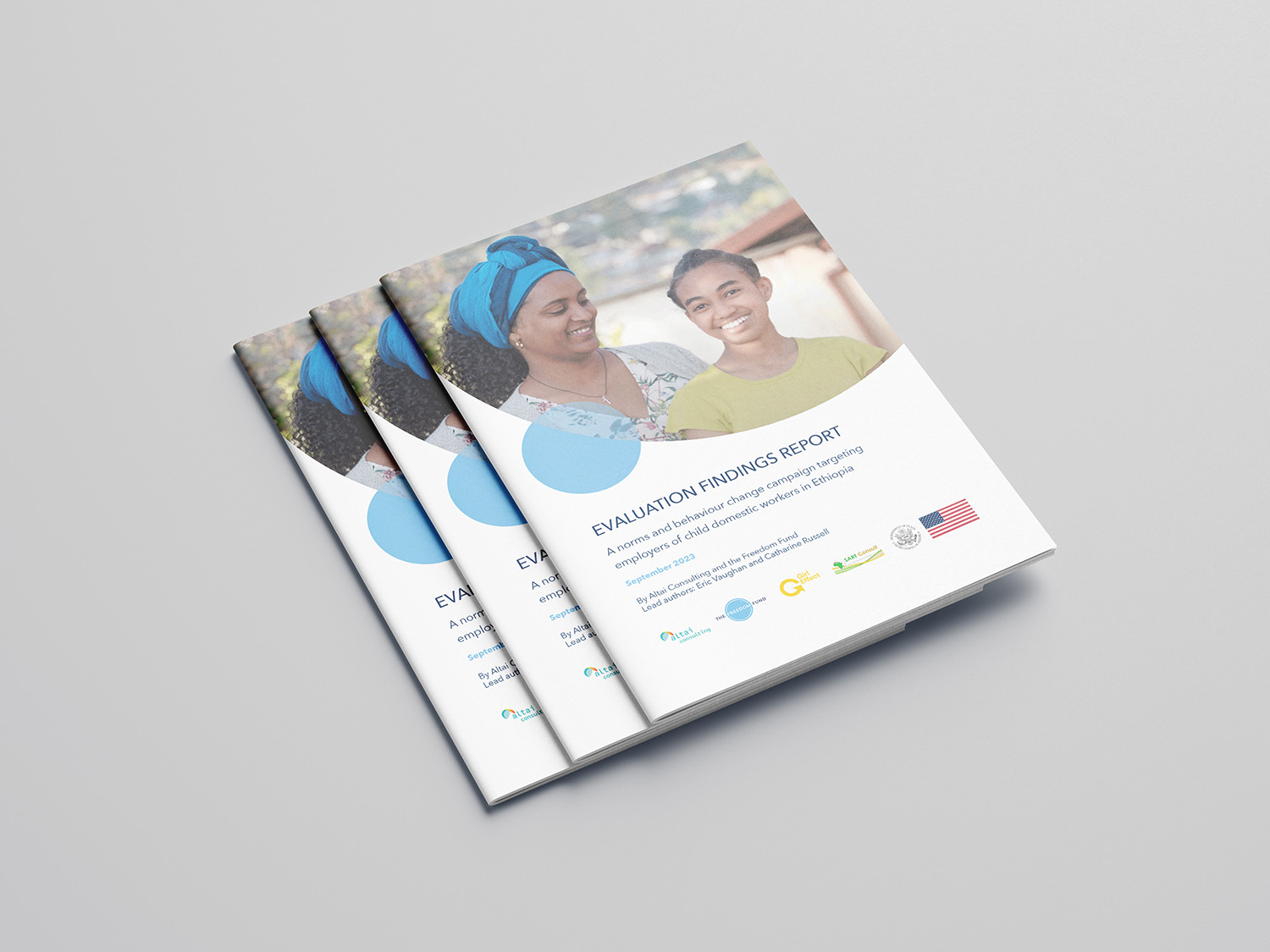
Funding Frontline Impact
In the anti-slavery movement and beyond, the Freedom Fund believes the leadership of frontline organisations is critical to shifting any system. We know other funders and philanthropic professionals agree, but often struggle to find and fund these organisations effectively. As part of our efforts to drive more investment to frontline organisations and to share more openly about our internal practices, policies and decision-making processes, we created Funding Frontline Impact, an online resource to support other funders on a similar journey.
Drawing from a decade of experience supporting frontline organisations around the world, Funding Frontline Impact features big picture funding principles, tactical grantmaking advice, video case studies featuring Freedom Fund team members, and a resource hub with guides, templates and tools. It also offers opportunities for donors to take action and share feedback.
Since its launch in July 2023, Funding Frontline Impact has had over 2,700 visitors and over 750 resource downloads. We look forward to continuing to share this resource as we advocate for equitable funding for frontline groups.
Visit fundingfrontlineimpact.org to learn more.
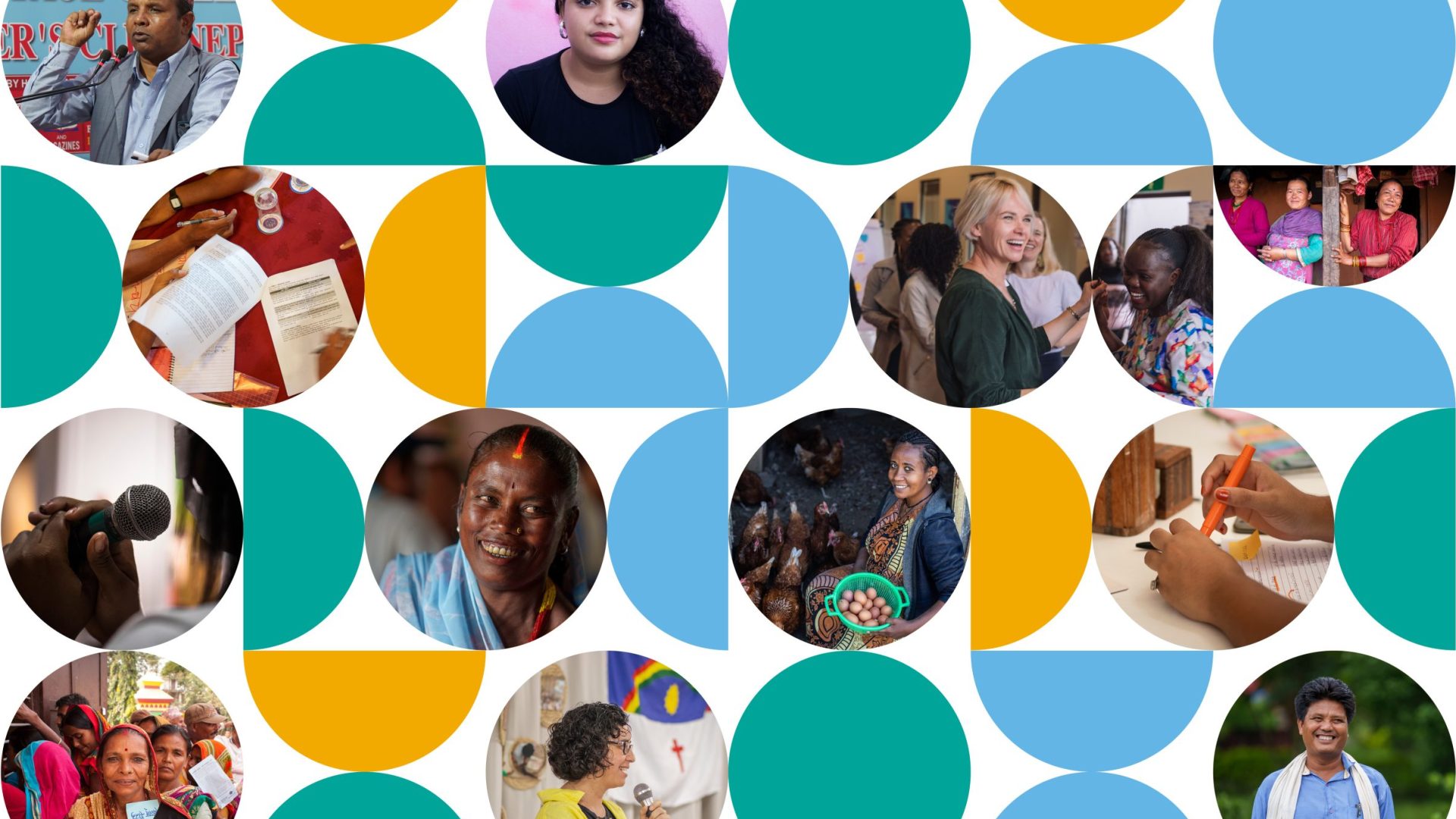
Looking ahead
We will multiply our efforts to bring an end to modern slavery by delivering the change needed to break cycles of exploitation.
We see the Freedom Fund’s role as threefold: identifying and scaling effective community-based interventions; fostering a stronger and more inclusive anti-slavery movement; and ensuring that powerholders — including governments and businesses — fulfil their responsibilities to combat exploitation. In the upcoming year we will continue our journey of growth.
Supporters
We are grateful for the generous backing of all our investors and donors whose support allows us to strengthen frontline efforts to end modern slavery and build a more inclusive movement.
Founders
Key investors
Directors
Katherine Bryant – Head of Policy and Programs, Walk Free
Shruti Chandrasekhar – Head of Investments, Africa Region, IFC
Natasha Dolby – Co-Founder, Freedom Forward; Vice President, Ray and Dagmar Dolby Family Fund
Andrew Doust (Vice-chair) – Founder, Plenitude Partners
Molly Gochman (Chair) – Artist and Human Rights Activist, Stardust Fund
Mahendra Pandey (Vice-chair) – Senior Manager, Forced Labour and Human Trafficking, Humanity United
Michelle Yue – Co-Founder, Beam Network
Council of advocates
Natasha Dolby – Freedom Forward
Molly Gochman – Stardust Foundation
Ken Goody – Dorothea Haus Ross Foundation
Debbie Salkind – Bright Horizon Fund
Lisa Wolverton – Wolverton Foundation
Michelle Yue (Chair) – The Millby Foundation
Catherine Zennström – Zennström Philanthropies



